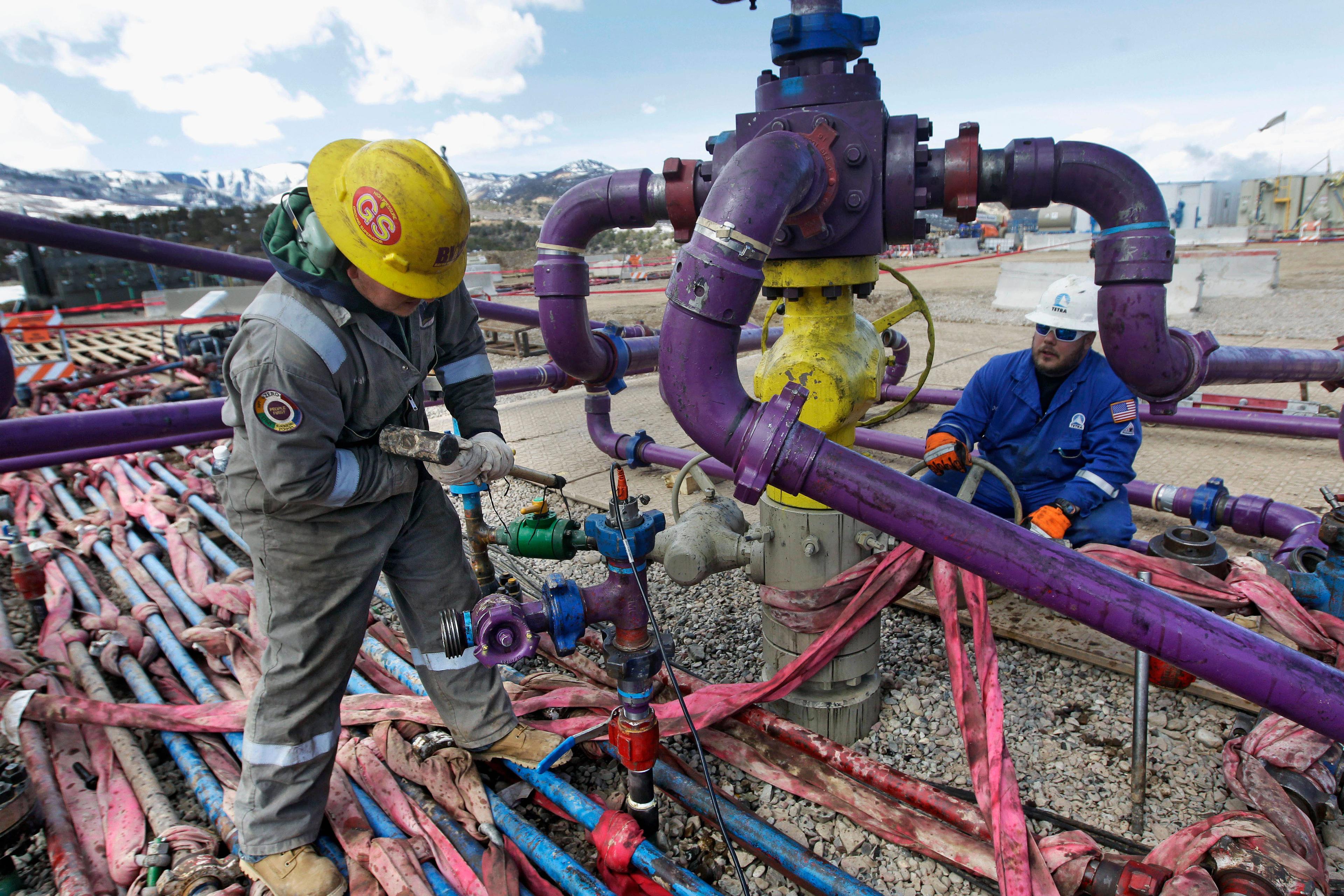

Energy leaders in Wyoming are closely watching the fate of a Colorado ballot initiative that would severely limit fracking on non-federal land in that state.
The Wyoming Tribune Eagle reports that Colorado-based opponents of the initiative warn it could drive jobs, capital and production northward into Wyoming.
But Wyoming industry leaders say it's way too early to say what impact the initiative could have on the Equality State's economy.
Colorado's Proposition 112 would require that new oil and gas wells be at least 2,500 feet from occupied buildings and would allow local governments to enact even greater setbacks. Current requirements are 500 feet from homes and 1,000 feet from schools.
- You’ve Got Prop 112 Questions: Here Are Some Answers
It also would increase setbacks between new energy operations and “vulnerable areas” that include parks, creeks and irrigation canals. Current law gives the state jurisdiction over setbacks.
It's the latest attempt to harness drilling in Colorado's rapidly expanding Denver metropolitan area. Previous efforts have failed, despite advocates' concerns about health and drilling rigs close to schools.
A state analysis suggests the initiative would rule out 85 percent of non-federal land in Colorado to development and drastically reduce property taxes paid by the $32 billion state industry.
Proposition 112 is “literally a ban on new development,” argued Kathleen Sgamma, president of the Western Energy Alliance, a Denver-based oil and natural gas advocacy group. “So Wyoming would probably immediately see an increase in interest in the Powder River Basin. There's already quite a lot of interest in the Powder right now.”
The Powder River Basin, which straddles the Wyoming-Montana border, is the largest coal-producing region in the U.S. and, in Wyoming, hosts oil and natural gas drilling.
“There's lots (of development) already going on in Wyoming, but if Colorado basically shuts its door to new development, I do think you'd see even more investment going into Wyoming,” Sgamma said.
Wyoming could see some new investment from companies that operate in both states, said John Robitaille, vice president of the Petroleum Association of Wyoming. But the fact that more than 60 percent of minerals in Wyoming belong to the federal government raises roadblocks, he said.
“With the federal government comes various other actions that have to be taken when drilling a well, and sometimes it can be very time consuming,” Robitaille said.
Mark Watson, who directs the Wyoming Oil and Gas Conservation Commission, said any companies considering leaving Colorado could go anywhere in the U.S., especially states where energy operations are on non-federal lands. Any predictions at this point, he said, are speculative.
The commission is a state regulatory agency.
“I think maybe people might make it a bigger deal than what it is, as for as it being a benefit to Wyoming,” Watson said. “It will be interesting to see how people vote in Colorado and what that does with the rest of the country.”








